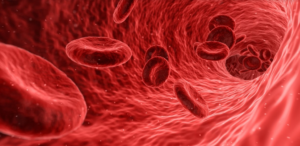Chemotherapy is one of the best and most recommended treatments for cancer. The term chemotherapy, or otherwise known as chemo, refers to a treatment that prevents the cancer cells from dividing and growing further in a patient’s body. It does this by killing these harmful malignant cancerous cells. Chemotherapy is a kind of invasive treatment or therapy that can have adverse effects on the patient’s body. This is because the chemo often targets not only cancerous cells but also healthy cells at the same time.
In most of the cases, chemotherapy can shrink out malignant tumours and curb them from growing further. But, certain kinds of chemotherapy treatments can also affect your immune system by making it weaker. This can expose your body to infections and other developing related conditions. Here, given below, are some simple ways to take care of your immune system if you’re undergoing a chemotherapy treatment.
1. Focus on your Nutrition
Poor nutrition weakens your body & its immune system. In turn, it increases your chances of getting sick. A healthy, well-balanced and nutritious diet is vital for your health and your body’s immune system. Check with your doctor or the nutritionist & gather all the information you need to chart-out your diet and eat properly throughout your chemotherapy — especially at times when you may not really feel like eating much. It is important to follow the diet chart and stick to it so that the nutrients are balanced out and your immune system gets the fuel it needs to keep healthy & charged up. Many germs can also be spread through contaminated food or beverages. To keep yourself protected, properly wash the raw fruits and vegetables before consuming them. Ensure that you cook all animal products, including meat, egg, and dairy products properly and thoroughly before eating.
2. Go Clean!
Good hygiene is very important, especially when your immune system is not at its 100%. You can easily lower down your chances of getting sick by washing your hands regularly with a disinfectant soap and warm water before meals; touching your face; after visiting any public places; or after being with people who are sick; after using the washroom, touching garbage, etc. Likewise, keep your clothes sanitised and try using sterilized utensils. Take regular showers and brush your teeth twice every day. Your hygiene quotient determines your body’s immunity quotient.
3. Keep Distance
Many times, we tend to pick up diseases from other people around us while interacting or engaging with them directly or indirectly. Try not to spend time with people who have the flu, fever, or other infections. If anyone in your home is sick, try and avoid spending time in the same room; avoid sharing personal things with them, like pillows and towels; ask everyone in the house to use hand sanitizers whenever possible, and wash your hands regularly with soap and water. The idea is to maintain a safe distance from anyone who is sick. You are already undergoing chemo and you would not want to stress out your immune system with another infection. You should also try and avoid going to places with large crowds. Someone in the crowd may have viral or other infection.
4. Protective Medication
Typically, while undergoing chemo, your doctor will closely monitor how your body is responding to the treatment and look for all internal and visible signs that suggest both positive and negative impacts. The doctor will also keep a check on your immunity system in order to ensure that you don’t fall sick because of any other diseases during the chemotherapy. Whenever required, the doctor will prescribe some protective drugs to keep your body’s immunity intact. These medicines can be in the form of anti-bacterial, anti-viral, and anti-fungal medications. The core job of these drugs is to keep you away from any form of infection or sickness especially when your own immune system is temporarily weakened due to the ongoing chemo.
5. Pets – Do’s & Don’ts
If you have pets or livestock, ask or assign someone else to take the responsibility of cleaning their cages, tanks, and litter boxes. You should avoid touching animal waste directly, as well as the soil that might have been contaminated with waste. However, if you really must handle such things, don’t forget to wear protective gloves and do wash your hands properly before and afterward. You should also avoid interacting with your pets for too long during chemo, as they might also give you some form of infection through the bacteria in the saliva, skin, etc.
6. Self Diagnosis
Look out for any anomalies report signs of infection immediately. Watch out for signs and symptoms of infection, such as fever; chills; diarrhea; cough; vomiting; sore throat; congestion of the nose; redness, swelling, warmth, or pain in any part of your body; and changes in mental status. If you even remotely suspect that you might have caught on an infection, contact your doctor immediately. Early detection and treatment of infections can help you recover rather quickly and reduce the risk of complications.
7. Sleep Well
Typically, a seven or more hours of uninterrupted sleep every night helps your immune system function well. Many studies have concluded that sleep deprivation suppresses the immune system, and lowers its ability to keep illness and infections at bay. Before, during, and after your cancer treatment, giving your body a good-quality sleep is important.
8. Stress Reduction & Exercising
Exercising every day (not necessarily a rigorous one) helps your body in many positive ways – maintains a healthy weight, eases out the treatment’s side effects, boosts your energy, and more! It also helps you de-stress yourself. Stress is an important factor as chronically high levels of stress hormones suppress your body’s immune system and reduce its ability to defend or repair itself. Stress reduction techniques such as meditation, massage, yoga and support groups, among other techniques can help you significantly, which in turn also helps to keep your immune system strong and functioning well.








